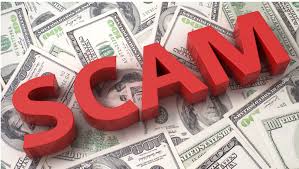Local News
Online Car Sellers Targeted by Fake Check Scams

Consumers selling their vehicle online should be aware they may be targeted by fake check scammers. These scammers send a message to people listing their cars for sale on peer-to-peer sales platforms, like Facebook Marketplace or Craigslist, and pretend to be interested in buying the vehicle. They claim they are not local and cannot examine the car in person right away, but offer to send the seller a check as a deposit to hold the car for them.
Fake check scams take advantage of the way checks are processed by banks. They commonly follow this pattern: The check sender says they accidentally overpaid, and asks the check recipient to send the extra money back to them. If the target trusts the check they received is real, they may deposit it and return the difference to the scammer. Money from the fake check can appear quickly in the depositor’s account, but it can take weeks for a bank to determine a check was fraudulent and remove its funds from the account balance. At this point, the scam victim has already sent the scammer the “overpaid” amount but did not actually receive any money in the exchange – and may even need to repay the bank.
Tips for consumers:
· Don’t accept a check for more than the selling price. If someone sends a check for more than the selling price and asks for money to be sent back, it’s a scam.
· Never send money to anyone who says they overpaid by check. Never use money from a check to send gift cards, money orders, cryptocurrency, or to wire money. It can be very hard to get money back when it is sent to a scammer through one of these payment methods.
· Consider using an escrow or online payment service when you sell a car online. This protects both the buyer and the seller.
While fake check scams related to online car sales appear to be on the rise, they are not the only scam targeting vehicle sellers. One consumer recently contacted DATCP after a car they purchased through Facebook Marketplace turned out to be stolen, and came with a convincing but fraudulent title. Whenever making a purchase as significant as a vehicle, consumers should verify the other party in the transaction is legitimate.


